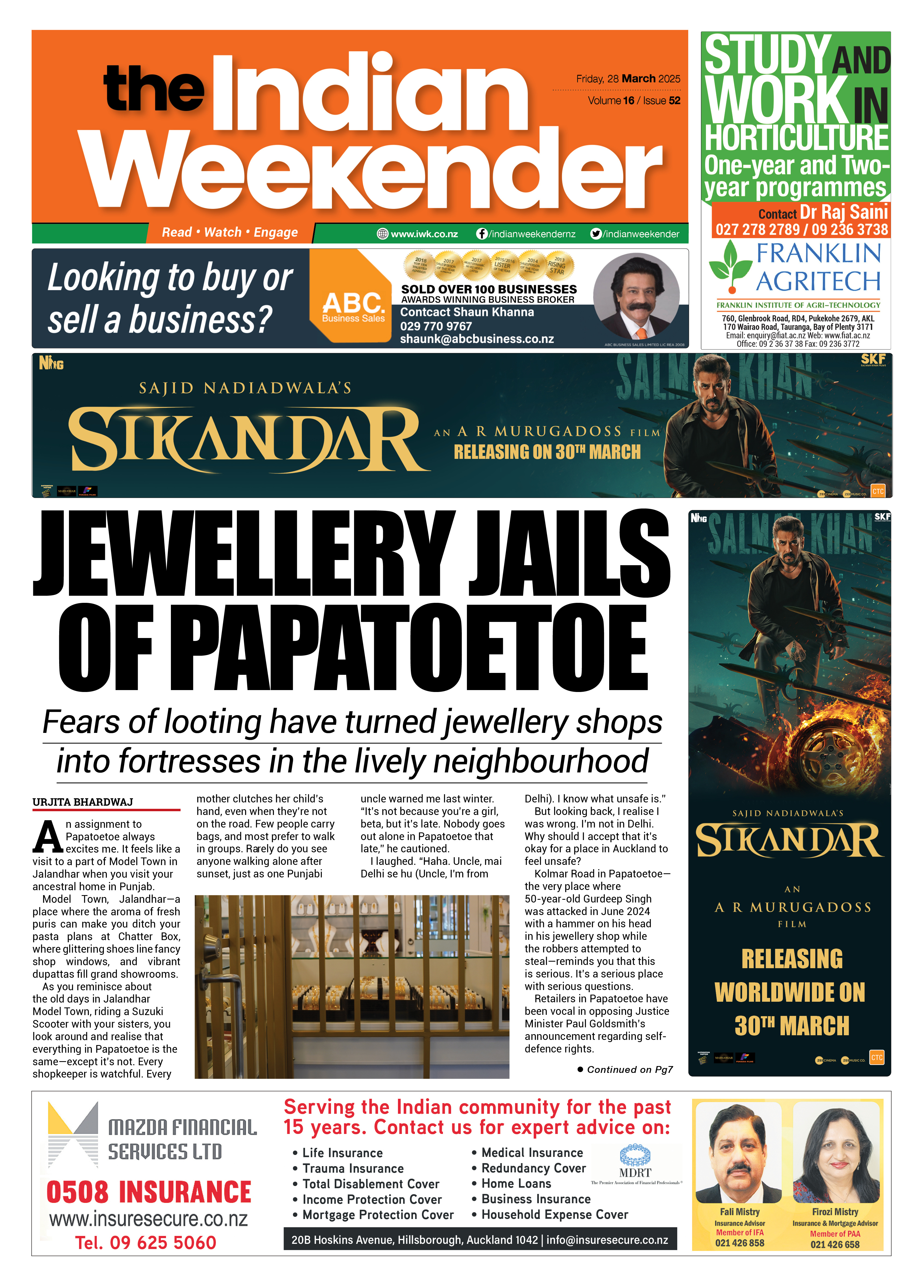South Asian Liquor Businesses Hit With Regulations

South Asian owners of liquor outlets in Auckland and the Waikato region have been buffeted by some regulatory headwinds over the past year as local and central governments seek to tighten rules surrounding the sale of alcohol.
On 29 August, Auckland Council voted unanimously for off-licences to stop selling alcohol after 9pm from 9 December.
The council also put a two-year freeze on new bottle shops opening in the CBD and 23 other town centres from 16 September.
Auckland councillor Josephine Bartley, who is also chair of Auckland Council's regulatory and safety committee, said the policy change represented a "momentous day for communities across Tāmaki Makaurau".
"[Communities and businesses] told us that we didn't need more off-licences and the hours that shops can sell alcohol should be reduced," she said. "That's what we've now been able to achieve."
Health New Zealand medical officer June Leung agreed, arguing that alcohol harm - "injuries, violence and car crashes" - can be reduced if the number of liquor outlets and the hours they trade are both limited.
The Auckland Council decision follows amendments to the 2012 Sale and Supply of Alcohol Act in August last year.
The changes effectively placed certain obstacles in front of anyone wanting to sell alcohol as a business.
Regulatory turbulence
It has been a turbulent year, with most South Asian business owners opposing last year's amendments only to now largely approve the reduced retail hours in Auckland.
Jaspreet Kandhari, general secretary of the New Zealand Indian Business Association, said most liquor outlets viewed the change in Auckland's alcohol policy as positive because it brought supermarkets and small businesses onto a level-playing field.

Jaspreet Kandhari Photo: Supplied
"Our members are already compliant with existing regulations," Kandhari said. "However, some businesses in Auckland's CBD may struggle due to the restrictions on closing times, particularly during the weekends.
"As such, feedback from our members is for the council to consider some relaxation [of the rules] around the festive season and long weekends.
"Moreover, a two-year freeze on new licences is a good move, but it's unfair to force the closure of existing outlets that are compliant."
A South Asian liquor business owner in the CBD, who spoke on condition of anonymity, said daily takings were expected to drop by almost 50 percent with a 9pm closing time.
"We know the Auckland Council's decision came after a 10-year legal battle and we appreciate the concerns expressed on alcohol harm," he said.
"But considering the current economic crisis, where every business is struggling to survive, the authorities could have considered a staggered approach to the new closing time - reducing it to 10pm first, and then to 9pm ... a few months [later].
"Even now, if they postpone the 9 December start date to just after the summer break, it will be a huge relief for us."
Another South Asian liquor store owner in Mount Eden, who also spoke on condition of anonymity, was pleased with the decision to restrict closing time to 9pm.
"With the crime rate as it is in Auckland, I am happy with the new closing time," he said. "I had to open my shop if others were open even if it was a bit scary during nights. But now, I can close at the same time as everyone else."
Liquor business owners in South Auckland agreed, adding that it would be safer to operate even though their cash flow would be affected.
Hurshdeep Singh Suri, who owns a liquor shop in Papakura, called on Auckland Council to provide more clarity on licence renewals.
"The 9pm closing time and a near freeze on new licences is appreciated," he said. "But what will happen when an existing licence comes for renewal is not very clear. I would request the council to provide some guidance."
Licence applications
While South Asian liquor store owners largely supported Auckland Council's efforts to reduce operating hours, many criticised the national amendments introduced in August 2023.
The Sale and Supply of Alcohol Amendment (Community Participation) Bill removed the ability for parties to appeal provisional local alcohol policies, disallowed cross-examination at alcohol licensing hearings, extended timeframes for objecting to a licence application, and allowed any person or group to object to a licence application, with a narrow exception for trade competitors.
The new legislation effectively allows anyone in the country the opportunity to challenge licence applications despite being unaffected by proximity to the store.
Then-Justice Minister Ginny Andersen called the amendments "a huge win for communities that were struggling with the widespread and damaging effects of alcohol-related harm".
The changes empowered communities to have their say, Andersen said.
"Many councils across the country have had to abandon their efforts to put local alcohol policies (LAPs) in place, after facing expensive and lengthy legal opposition," she said. "To fix this the government is removing the ability for parties to appeal provisional LAPs."
National and ACT opposed the 2023 amendments.
"While well-intentioned, the amendments risk harming businesses without significantly improving community wellbeing," Kandhari said.
"The provisions in these amendments are disproportionately stringent for all liquor outlets, threatening their survival and burdening them with high legal costs to defend their licences upon renewal."
Himanshu Parmar, former ACT electoral candidate and owner of multiple liquor stores in the Waikato region, suggested "excluding existing licence holders from the scope of the amended act, and applying it only to new licence applicants".
"The changes brought in by the previous government have had a very negative impact on our industry. They solely lay the blame of alcohol harm on business owners, rather than tackling wider society issues around alcohol harm," Parmar said.
"Legislation changes have created bottlenecks of unnecessary red tape and delays in licence renewals. This is resulting in increased litigation fees and ultimately ends up benefiting lawyers."
Parmar highlighted amendments governing new licence applications as well as renewals.
"Anyone can object to any liquor licence renewal from anywhere in the country," he said. "This is an insane move."
Anderson defended the amendments last year, noting that only a small group of people with specific interests could previously object to a new licence or renewal.
She said the 2023 amendments were an attempt to allow more individuals and groups to "have a say about the way alcohol is sold in their local communities".
Kandhari believed it was possible for community and business interests to align on licence applications.
"While conditions on licences such as operating hours, appropriate signage and bans on single-unit sales are reasonable, challenging nearly every licence renewal is an unnecessarily punitive and counterproductive approach," he said.
"By collaborating, policymakers and business owners can develop solutions that enhance safety and health without unfairly punishing responsible businesses."





